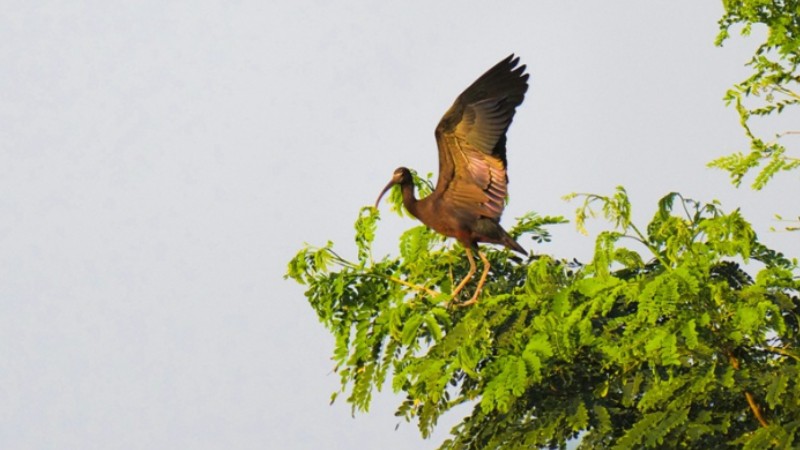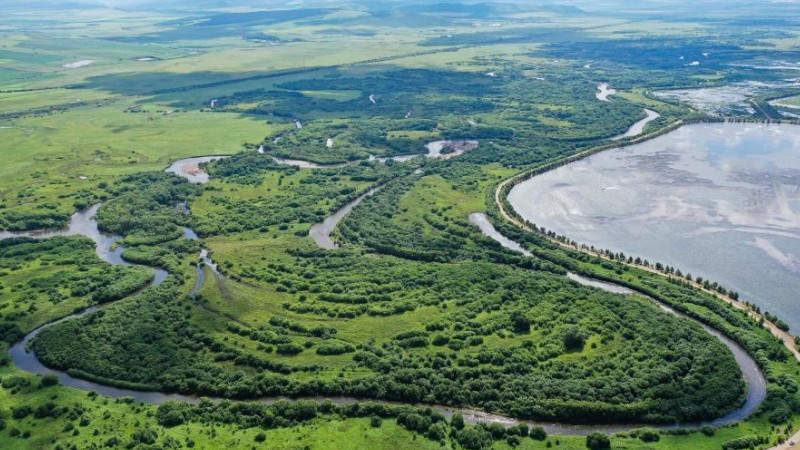Interview: China has made great advancement in biodiversity protection, says renowned British animal photographer
LONDON, Aug. 2 (Xinhua) -- China has made great advancement in terms of biodiversity protection, Tim Flach, a British photographer known for his stylized animal portraits, has said.
Flach, an honorary fellow of Britain's Royal Photographic Society, has dedicated his career to documenting biodiversity and conveying a sense of empathy towards the planet's endangered species.
He told Xinhua in a recent interview in London that China has made "committed approaches" to protecting biodiversity, such as planting many trees, banning the sale of ivory, etc.
Flach has traveled to China several times to photograph animals such as the giant panda, red panda and golden monkey, witnessing and recording the stories of China's biodiversity conservation through his lens.
His most interesting trip in China was photographing the Yunnan snub-nosed monkey, "where I have to go right into the forest." With the help of a filmmaker friend, Flach "went marching off (into the forest) and was lucky enough to meet them (the snub-nosed monkeys)."
The snub-nosed monkeys' huge red lips left him with a deep impression, to Flach they appeared as if they have "had cosmetic surgery."
One of the photos he cherished a lot was taken in 2015. The photo showed a scene from the giant panda reintroduction program in Wolong National Nature Reserve of China's Sichuan province. In the photo, two scientists were dressed up like pandas, with one of them holding a panda cub carefully with both hands.
"They (the scientists) made themselves quite smelly, so they didn't smell like humans. I'm in one of these (panda-like) onesies photographing everyone else," said Flach.
He said wildlife photography can be more than just attractive photos. "Through my photography, I seek to bring animals into direct view to evoke empathy and create an emotional bond. My goal is to inspire people to take action for conservation. If we truly care about these endangered creatures, we can pull them back from the edge of extinction before it is too late."
Flach's animal portraits have been exhibited in China several times in recent years, with the theme "The Disappearing World -- Their Future and Ours."
"It's a great honor to have my work in public shows," said Flach, recalling an exhibition showing his endangered animal portraits at the Yunnan Provincial Museum in Kunming in 2021, which had aroused huge interest among students there.
Flach told Xinhua that he hopes to prepare future generations, and that exhibitions like this make him feel they are "very rewarding ... because that's really what I want to do."
Apart from helping with the conservation of rare species, photography is one of the best ways to help people to understand different cultures, he noted.
"I think we're in a time when we have the challenges, not just of climate change, of the impact of the natural world," he said. "At the time we enter AI, we need a world that works together and breaks down the barriers. A medium like photography, in a sense, is a language that crosses these barriers. You don't need to translate it into Mandarin or English."
Photos
Related Stories
- Slow global traveller tells stories of diverse China
- SW China stays active in conservation of plant species with extremely small populations
- National park project boosts desert biodiversity in China's Xinjiang
- Sri Lankan, Chinese experts hold symposium on coral reef ecology
- China's Sanjiangyuan bolsters biodiversity conservation efforts
Copyright © 2023 People's Daily Online. All Rights Reserved.









